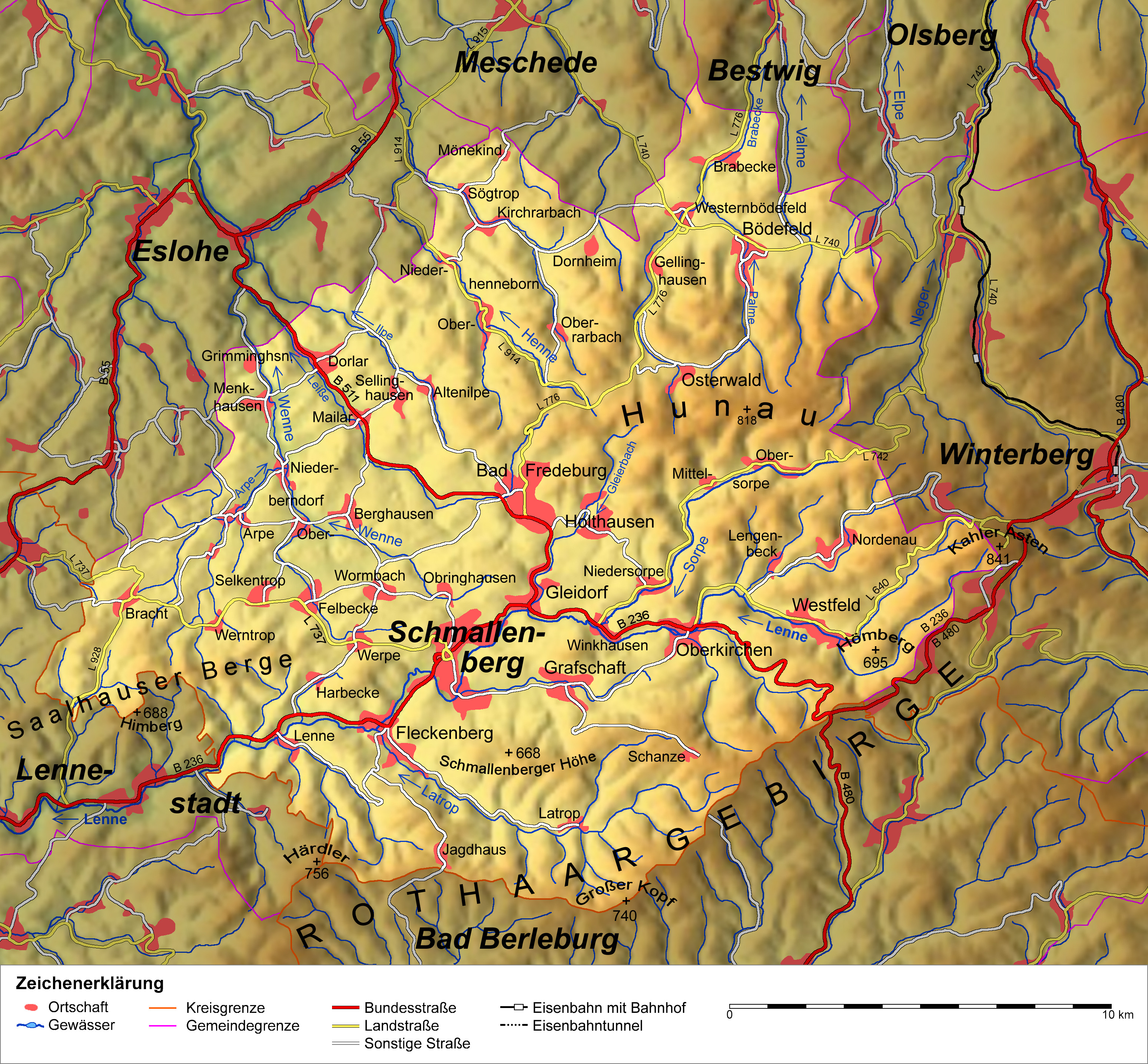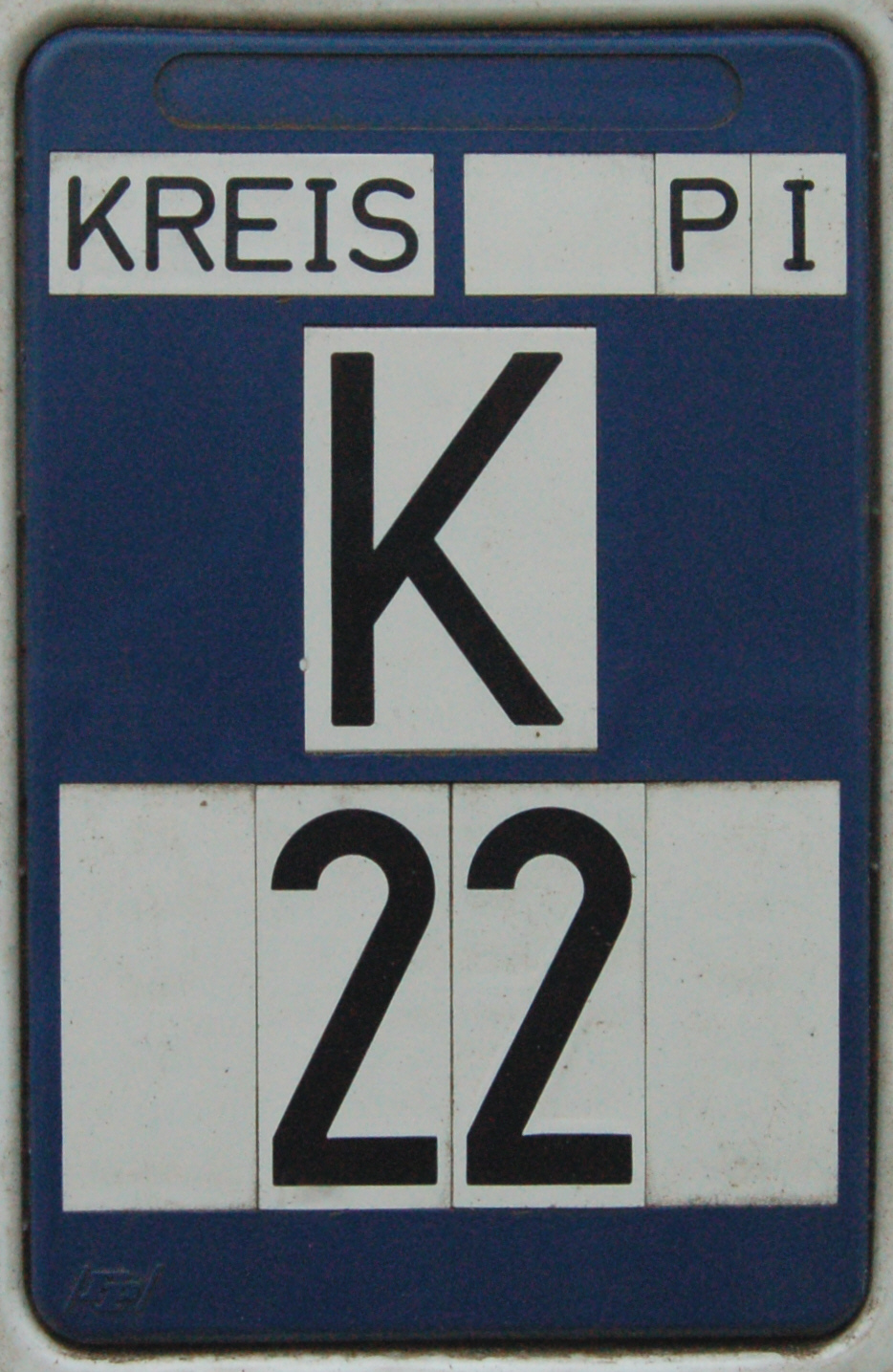|
Werpe
Werpe is a locality in the municipality Schmallenberg in the district Hochsauerlandkreis in North Rhine-Westphalia, Germany. The Werpe has 203 inhabitants and lies in the west of the municipality of Schmallenberg at a height of around 430 m. The river Wehrsiepen flows through the village. Werpe borders on the villages of Harbecke, Felbecke, Wormbach, Schmallenberg and Fleckenberg. Schmallenberg's aerodrome (Motorsport- und Segelflugplatz Rennefeld) is between the villages of Werpe and Wormbach. In the village centre the Landesstraße 737 meets the Kreisstraße A Kreisstraße (literally: "district road" or "county road") is a class of road in Germany. It carries traffic between the towns and villages within a '' Kreis'' or district or between two neighbouring districts. In importance, the ''Kreisstraße ... 25. Werpe was first mentioned in 1221 in a document. The village used to belong to the municipality of Wormbach in Amt Schmallenberg until the end of 1974. Gallery Fi ... [...More Info...] [...Related Items...] OR: [Wikipedia] [Google] [Baidu] |
Wormbach
Wormbach is a locality in the municipality Schmallenberg in the High Sauerland District in North Rhine-Westphalia, Germany. The village has 417 inhabitants and lies in the north of the municipality of Schmallenberg at a height of around 500 m. Wormbach borders on the villages of Werpe, Felbecke, Berghausen, Ebbinghof, Obringhausen and Schmallenberg. Schmallenberg’s aerodrome (Motorsport- und Segelflugplatz Rennefeld) is between the villages of Werpe and Wormbach. In the village centre the Kreisstraße 25 meets the Kreisstraße 31. The first written document mentioning ''Worunbach'' dates from 1072 in a charter from Grafschaft Abbey Grafschaft Abbey (german: Kloster Grafschaft) is a community of the Sisters of Mercy of Saint Charles Borromeo, formerly a Benedictine monastery, in Schmallenberg-Grafschaft in the Sauerland, North Rhine-Westphalia, Germany. First foundation ... of bishop Anno of Cologne. The village used to belong to the municipality of Wormbach in A ... [...More Info...] [...Related Items...] OR: [Wikipedia] [Google] [Baidu] |
Schmallenberg
Schmallenberg ( Westphalian: ''Smalmereg'') is a town and a climatic health resort in the High Sauerland District, Germany. By area, it is the third biggest of all cities and towns of the state of North Rhine-Westphalia and the second biggest of the region of Westphalia. With small Schmallenberg central town and the rural Bad Fredeburg Kneipp health resort the town has two urban settlements. Additionally, 82 villages and hamlets belong to the town's territory. Also being called “the Schmallenberg Sauerland”, the Town of Schmallenberg is famous for its total of fiveStadt Schmallenberg: Kurort health resorts and nineSchmallenberger Sauerland: Golddörfer Schmallenberg und Esloh villages which have been awarded gold for their beauty in the nationwide “” contest. Geography Schmallenberg is located in the southeast of the Sauerland mountainous landscape. The Rothaar Mountains make up a part of the town's territory. Through the central town flows the river Lenne. It is sit ... [...More Info...] [...Related Items...] OR: [Wikipedia] [Google] [Baidu] |
Harbecke
Harbecke is a locality in the municipality Schmallenberg in the district Hochsauerlandkreis in North Rhine-Westphalia, Germany. The village has 123 inhabitants and lies in the west of the municipality of Schmallenberg at a height of around 395 m on the Kreisstraße 25. The river Harbecke flows through the village. Harbecke borders on the villages of Felbecke, Fleckenberg, Lenne, Selkentrop, Werpe and Werntrop. "Hartbeke" was first mentioned in 1361 in a document from Grafschaft Abbey. The village used to belong to the municipality of Wormbach Wormbach is a locality in the municipality Schmallenberg in the High Sauerland District in North Rhine-Westphalia, Germany. The village has 417 inhabitants and lies in the north of the municipality of Schmallenberg at a height of around 500 m. W ... in Amt Schmallenberg until the end of 1974. Statistisches Bundesamt (Hrsg.): Historisches Gemeindeverzeichnis für die Bundesrepublik Deutschland. Namens-, Grenz- und Schlüsselnummernänd ... [...More Info...] [...Related Items...] OR: [Wikipedia] [Google] [Baidu] |
Felbecke
Felbecke is a locality in the municipality Schmallenberg in the district Hochsauerlandkreis in North Rhine-Westphalia, Germany. The locality Felbecke has 150 inhabitants and lies in the west of the municipality of Schmallenberg at a height of around 391 m. The river Werde flows through the village. In the village centre the 737 meets the 31. Felbecke borders on the villages of Selkentrop, Oberberndorf, |
Fleckenberg
Fleckenberg is a locality in the municipality Schmallenberg in the district Hochsauerlandkreis in North Rhine-Westphalia, Germany. The village has 1544 inhabitants and lies in the west of the municipality of Schmallenberg at a height of around 354 m on the 236. The river Latrop flows in Fleckenberg in the river . Fleckenberg borders on the villages of Schmallenberg, Jagdhaus, Waidmannsruh, Wulwesort, [...More Info...] [...Related Items...] OR: [Wikipedia] [Google] [Baidu] |
Arnsberg (region)
Arnsberg () is one of the five Regierungsbezirke of North Rhine-Westphalia, Germany, located in the west-central part of the country. It covers the Sauerland hills as well as the east part of the Ruhr area. The region was founded in 1815 as a subdivision of the Prussian Province of Westphalia. ''Kreise''(counties) # Ennepe-Ruhr # Hochsauerland # Märkischer Kreis # Olpe # Siegen-Wittgenstein # Soest # Unna Unna is a city of around 59,000 people in North Rhine-Westphalia, Germany, the seat of the Unna district. The newly refurbished Unna station has trains to all major cities in North Rhine Westphalia including Dortmund, Cologne, Münster, Hamm, ... ''Kreisfreie Städte''(independent cities) # Bochum # Dortmund # Hagen # Hamm # Herne Economy The Gross domestic product (GDP) of the region was 124.8 billion € in 2018, accounting for 3.7% of German economic output. GDP per capita adjusted for purchasing power was 32,000 € or 106% of the EU27 average in the s ... [...More Info...] [...Related Items...] OR: [Wikipedia] [Google] [Baidu] |
Hochsauerlandkreis
Hochsauerlandkreis (meaning “High Sauerland District” in German) is a Kreis (district) in the east of North Rhine-Westphalia, Germany. Neighboring districts are Soest, Paderborn, Höxter, Waldeck-Frankenberg, Siegen-Wittgenstein, Olpe, Märkischer Kreis. The district is named “High Sauerland” because two of the highest mountains of the Sauerland mountainous landscape, Langenberg and Kahler Asten are in its territory. With 2,766 ft / 843 m (Langenberg) and 2,762 ft / 842 m (Kahler Asten) these are also the highest mountains of North Rhine-Westphalia. History The district was established in 1975 in the reorganization of the districts in North Rhine-Westphalia by merging the previous districts Arnsberg, Brilon and Meschede. Geography Geographically the district covers a big part of the Sauerland mountains, including the highest and third highest elevation – the Langenberg near Olsberg with 2,766 ft / 843 m, and the better known Kahler Asten with 2 ... [...More Info...] [...Related Items...] OR: [Wikipedia] [Google] [Baidu] |
North Rhine-Westphalia
North Rhine-Westphalia (german: Nordrhein-Westfalen, ; li, Noordrien-Wesfale ; nds, Noordrhien-Westfalen; ksh, Noodrhing-Wäßßfaale), commonly shortened to NRW (), is a States of Germany, state (''Land'') in Western Germany. With more than 18 million inhabitants, it is the List of German states by population, most populous state of Germany. Apart from the city-states, it is also the List of German states by population density, most densely populated state in Germany. Covering an area of , it is the List of German states by area, fourth-largest German state by size. North Rhine-Westphalia features 30 of the 81 German municipalities with over 100,000 inhabitants, including Cologne (over 1 million), the state capital Düsseldorf, Dortmund and Essen (all about 600,000 inhabitants) and other cities predominantly located in the Rhine-Ruhr metropolitan area, the largest urban area in Germany and the fourth-largest on the European continent. The location of the Rhine-Ruhr at the h ... [...More Info...] [...Related Items...] OR: [Wikipedia] [Google] [Baidu] |
Landesstraße
''Landesstraßen'' (singular: ''Landesstraße'') are roads in Germany and Austria that are, as a rule, the responsibility of the respective German or Austrian federal state. The term may therefore be translated as "state road". They are roads that cross the boundary of a rural or urban district (''Landkreis'' or ''Kreisfreie Stadt''). A ''Landesstraße'' is thus less important than a ''Bundesstraße'' or federal road, but more significant than a ''Kreisstraße'' or district road. The classification of a road as a ''Landesstraße'' is a legal matter (''Widmung''). In the free states of Bavaria and Saxony – but not, however, in the Free State of Thuringia – ''Landesstraßen'' are known as ''Staatsstraßen''. Designation The abbreviation for a ''Landesstraße'' consists of a prefixed capital letter ''L'' and a serial number (e. g. L 1, L 83, L 262 or L 3190). ''Staatsstraßen'' in Saxony are similarly abbreviated using a capital ''S'' (e. g. S 190) and the ''Staatsstraßen' ... [...More Info...] [...Related Items...] OR: [Wikipedia] [Google] [Baidu] |
Kreisstraße
A Kreisstraße (literally: "district road" or "county road") is a class of road in Germany. It carries traffic between the towns and villages within a '' Kreis'' or district or between two neighbouring districts. In importance, the ''Kreisstraße'' ranks below a ''Landesstraße'' (or, in Bavaria and Saxony, a ''Staatstraße'', i.e. a state road), but above a ''Gemeindestraße'' or "local road". ''Kreisstraßen'' are usually the responsibility of the respective rural district (''Landkreis'') or urban district (''Kreisfreie Stadt''), with the exception of high streets through larger towns and villages. Kreisstraßen are usually dual-lane roads but, in a few cases, can be built as limited-access dual carriageways in densely populated areas. Numbering Unlike local roads (''Gemeindestraßen'') the ''Kreisstraßen'' are invariably numbered, but their numbering is not shown on signs. The abbreviation is a prefixed capital letter K followed by a serial number. In most states the car n ... [...More Info...] [...Related Items...] OR: [Wikipedia] [Google] [Baidu] |
Villages In North Rhine-Westphalia
A village is a clustered human settlement or community, larger than a hamlet but smaller than a town (although the word is often used to describe both hamlets and smaller towns), with a population typically ranging from a few hundred to a few thousand. Though villages are often located in rural areas, the term urban village is also applied to certain urban neighborhoods. Villages are normally permanent, with fixed dwellings; however, transient villages can occur. Further, the dwellings of a village are fairly close to one another, not scattered broadly over the landscape, as a dispersed settlement. In the past, villages were a usual form of community for societies that practice subsistence agriculture, and also for some non-agricultural societies. In Great Britain, a hamlet earned the right to be called a village when it built a church. [...More Info...] [...Related Items...] OR: [Wikipedia] [Google] [Baidu] |

.jpg)


